CIVIL SOCIETY WATCH 6 - 10 FEBRUARY
This week — State of the Nation Address, 2030 Reading Panel and talk on becoming a ‘water activist’
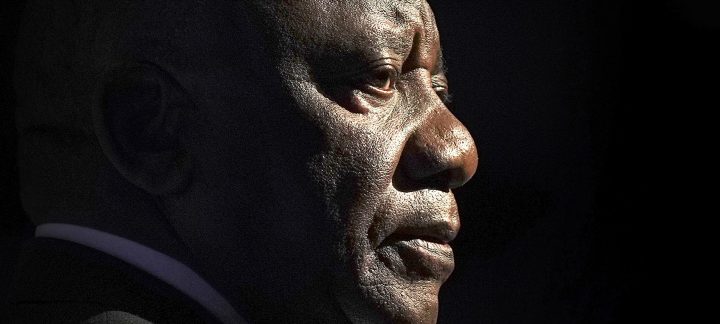
President Cyril Ramaphosa will deliver the State of the Nation Address before a joint sitting of the two houses of Parliament; the 2030 Reading Panel will kick off at the Stellenbosch Institute for Advanced Study; and WaterCAN — an initiative under the Organisation Undoing Tax Abuse — will host a webinar on ‘How to become a water activist’.
Monday 6 February is the International Day of Zero Tolerance for Female Genital Mutilation.
Female genital mutilation is understood as any practice that involves altering or injuring the female genitalia for non-medical reason. It is seen internationally as a violation of the human rights of girls and women, as well as a risk to their health.
“Over the last 25 years, the prevalence of FGM (female genital mutilation) has declined globally. Today, a girl is one-third less likely to undergo FGM than 30 years ago. However, sustaining these achievements in the face of humanitarian crises such as disease outbreaks, climate change, armed conflict and more could cause a rollback of progress toward achieving gender equality and the elimination of FGM by 2030,” according to the United Nations information page on the event.
“To promote the elimination of female genital mutilation, coordinated and systematic efforts are needed, and they must engage whole communities and focus on human rights, gender equality, sexual education and attention to the needs of women and girls who suffer from its consequences.”
On Monday, 6 February, at 9am, the virtual conference, “Countering the Corrupt – Reform of the Criminal Justice Administration in South Africa”, kicked off.
The event, hosted by civil society partners Konrad Adenauer Stiftung, Primerio International, Accountability Now and the University of Cape Town, aimed to explore critical aspects of the reform of the criminal justice administration in South Africa.
“Chief Justice Zondo was scathing in his final report of the State Capture Commission, pointing to industrial-scale fraud, looting, corruption, and massive deficit in integrity, accountability and hence governance, leading to citizens being unable to access their basic human rights as enshrined in our Constitution,” according to the event description.
“President [Cyril] Ramaphosa… invited citizens with the requisite skills and expertise to come forward in helping fix the country and society broken by the state capture project.”
The livestream of the event can be accessed here.
On Monday at 10am, Prasa (Passenger Rail Association of South Africa) whistle-blower Martha Ngoye addressed the public via YouTube live stream.
Prasa levelled various charges against Ngoye, their head of legal risk and compliance, including a charge of gross misconduct over statements she made to the Zondo Commission. They said she had brought Prasa and the board’s image into disrepute, according to a Daily Maverick report.
Read in Daily Maverick: “Suspended Prasa whistle-blower Martha Ngoye found not guilty in arbitration case”
The Commission for Conciliation, Mediation and Arbitration (CCMA) arbitrator has found Ngoye not guilty of any charges in the matter between her and Prasa. The report with this finding was submitted last week, effectively nullifying the grounds of Ngoye’s suspension.
In her address, Ngoye aimed to empower civil society to continue:
- Pressuring the ANC government to protect and support whistle-blowers;
- Pressuring President Cyril Ramaphosa to deliver on the promises he has made in this area; and
- Pressuring Prasa to stop its strategic litigation on whistle-blowers.
Watch the live stream here.
Also on Monday at 10am, Ritshidze held a community meeting launching the second edition of its “State of Healthcare for Key Populations” report.
“For KPs (key populations) — including people who use drugs, sex workers, and LGBTQIA+ communities — the experience at public health facilities is often untenable. Too often, staff are insensitive and unprofessional. Some KPs say the ill-treatment has been off-putting enough for them to prefer to go without ARV treatment, HIV prevention or other health services,” according to the event description.
“In order to document the challenges facing KPs and see if any progress has been made, earlier in the year Ritshidze began a second large-scale quantitative and qualitative data collection effort, across 21 districts. At the meeting, we will launch a new report and present the findings of the data collection.”
A live stream of the community meeting can be accessed here or here.
On Tuesday, 7 February, the first day of the Alternative Mining Indaba will kick off at the University of Cape Town Graduate School of Business Conference Centre, V&A Waterfront, Cape Town. The indaba will run until 9 February.
The event will see academics, nonprofits, community representatives, activists and businesses from around Africa gathering to deliberate over policy reforms, transparency, accountability and “responsible supply chains in the mining sector”.
“The 2023 instalment of the indaba will meet under the theme, ‘A just energy transition: Unlocking community potential and participation’,” according to the event description.
On the second day of the indaba, about 500 people will march around the conference centre to bring awareness to the struggles facing mining communities. On the final day, a memorandum will be handed over to the African Mining Indaba.
For more information, contact media liaison Rumana Akoob on [email protected] or 078 036 6832.
On Tuesday at 9am, the 2030 Reading Panel will kick off at the Stellenbosch Institute for Advanced Study (Stias).
The 2030 Reading Panel brings together respected South African leaders to explore what needs to change within the country to ensure all children learn to read by 2030. The panel is set to meet once a year every year until 2030.
Visit Daily Maverick’s home page for more news, analysis and investigations
A background report on reading levels for children in South Africa will be presented to the panel on Tuesday.
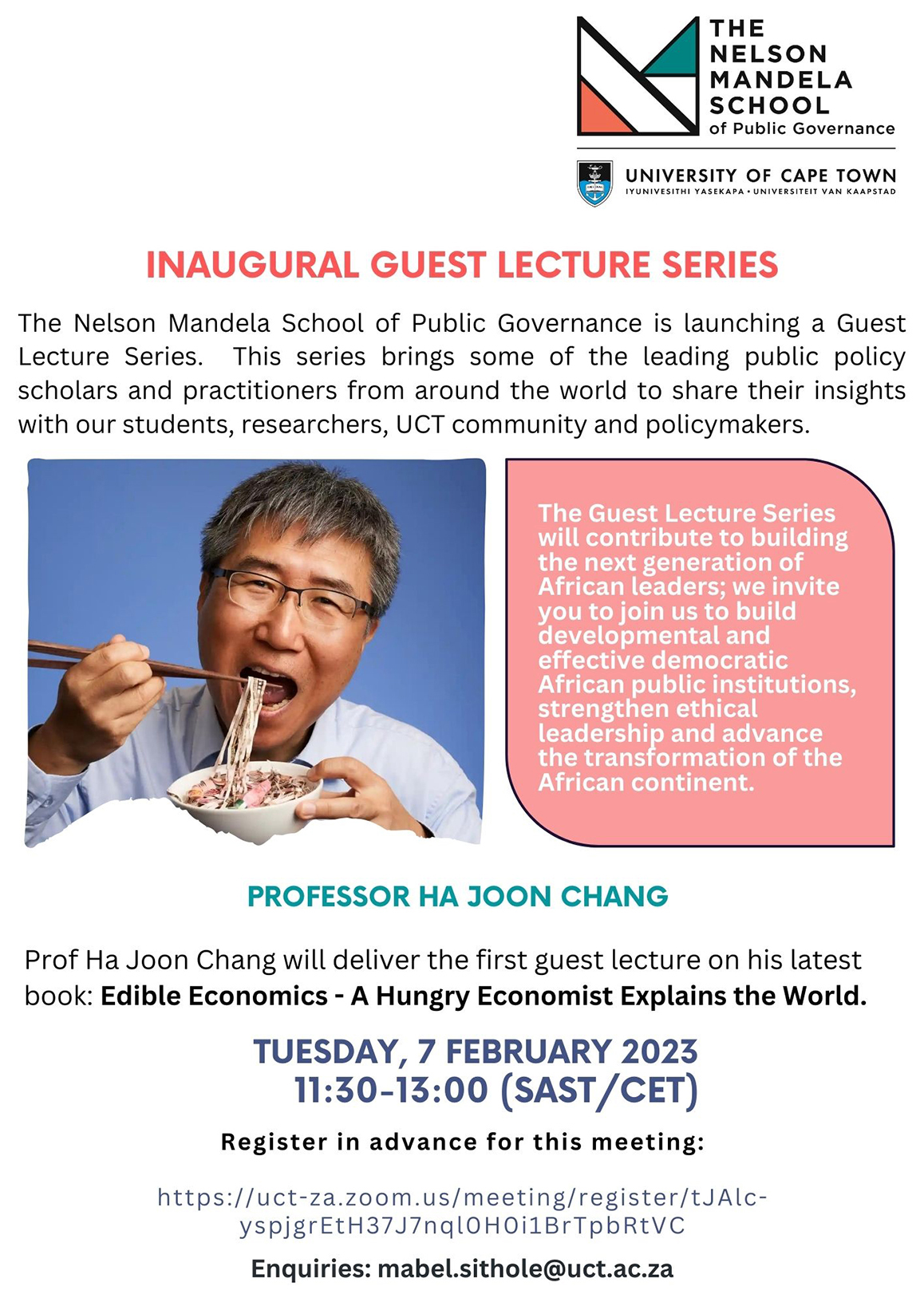
On Tuesday at 11.30am, the Nelson Mandela School of Public Governance is launching a guest lecture series that will see some of the leading public policy scholars and practitioners from around the world sharing their insights with students, researchers and policymakers.
Professor Ha Joon Chang will deliver the first guest lecture on his book, Edible Economics – A Hungry Economist Explains the World.
“The Guest Lecture Series will contribute to building the next generation of African leaders; we invite you to join us to build developmental and effective democratic African public institutions, strengthen ethical leadership and advance the transformation of the African continent,” according to the event description.
For further information, email [email protected].
Register for the event here.
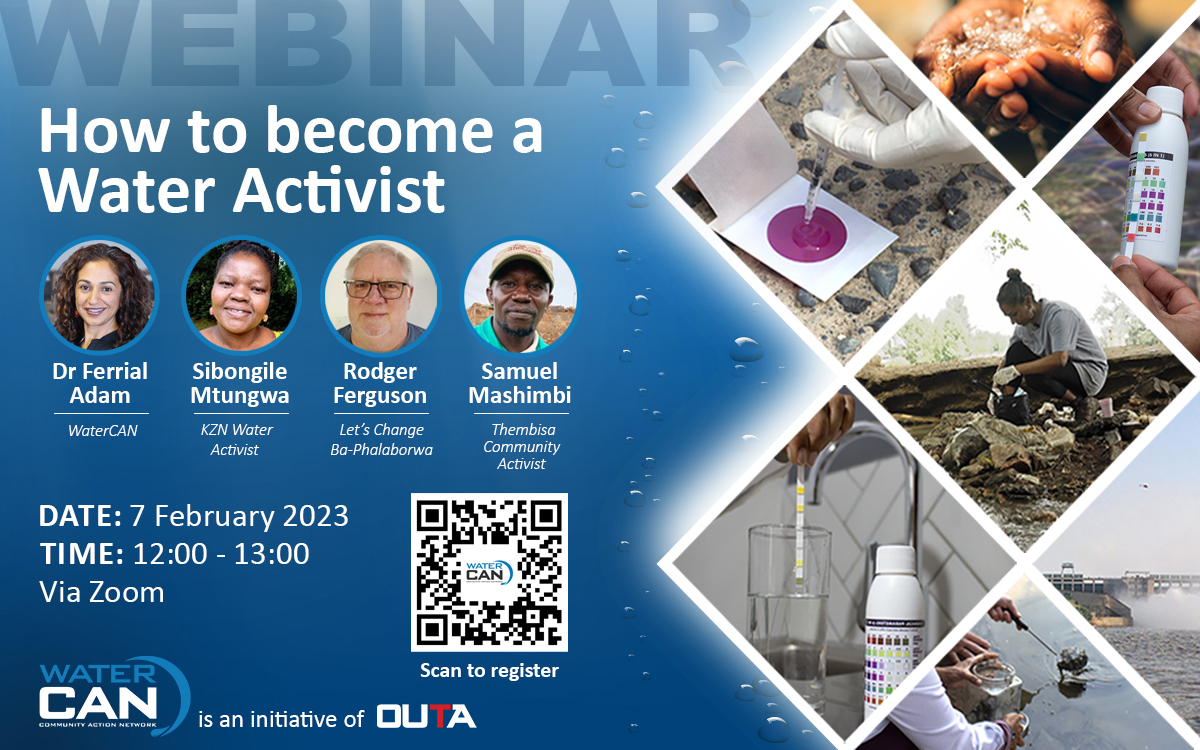
On Tuesday at 12pm, WaterCAN — an initiative under the Organisation Undoing Tax Abuse — is hosting a webinar on “How to become a water activist”.
“Water resources in the country are in a dire state. Municipalities fail to meet residents’ basic needs. We as citizens need to work together to defend our water resources and encourage change,” according to the event description.
“Join us to find out how you too can start change in your community as we discover what it takes to be a water champion. Our aim is to share experiences so that we can build water champions and activists across the country.”
Speakers include Dr Ferrial Adam of WaterCAN; Sibongile Mtungwa, a KwaZulu-Natal water activist; Rodger Ferguson of Let’s Change Ba-Phalaborwa; and Samuel Mashimbi, a Thembisa community activist.
Register here.
On Wednesday, 8 February, at 10am, members of Reclaim the City, Intlungu yaseMatyotyombeni and partners are gathering outside the Cape Town Civic Centre to “push back against the continued oppression and abuse of the poor”.
“We will also deliver a list of our demands to the City of Cape Town. We wish to expose the City of Cape Town and Law Enforcement brutality through various means on the day,” stated the event description.
The protest will happen in the same week that Bulelani Qolani’s court papers will be served to the City of Cape Town. Law Enforcement officers carrying out a series of illegal evictions dragged Qolani from his home in eThembeni, Khayelitsha, on 1 July 2020, during the Covid-19 pandemic. He was naked during the encounter.
“Unlike the many Law Enforcement human violations sustained by the people of informal settlements in Cape Town, Qolani’s violation was filmed by Bonga Zamisa and subsequently garnered national and international attention,” stated the event description.
“While what happened to Bulelani is horrifying, it is not uncommon. For many years, the landless people of informal settlements in Cape Town have sustained both physical and psychological abuse at the hands of Law Enforcement.”
For more information on Wednesday’s protest, contact Nikelwa Maqula on 063 341 5464; Bulelani Qolani on 073 570 5469; Wiseman Mpepo on 073 685 5039; or Yusrah Bardien on 082 470 1441 or [email protected].
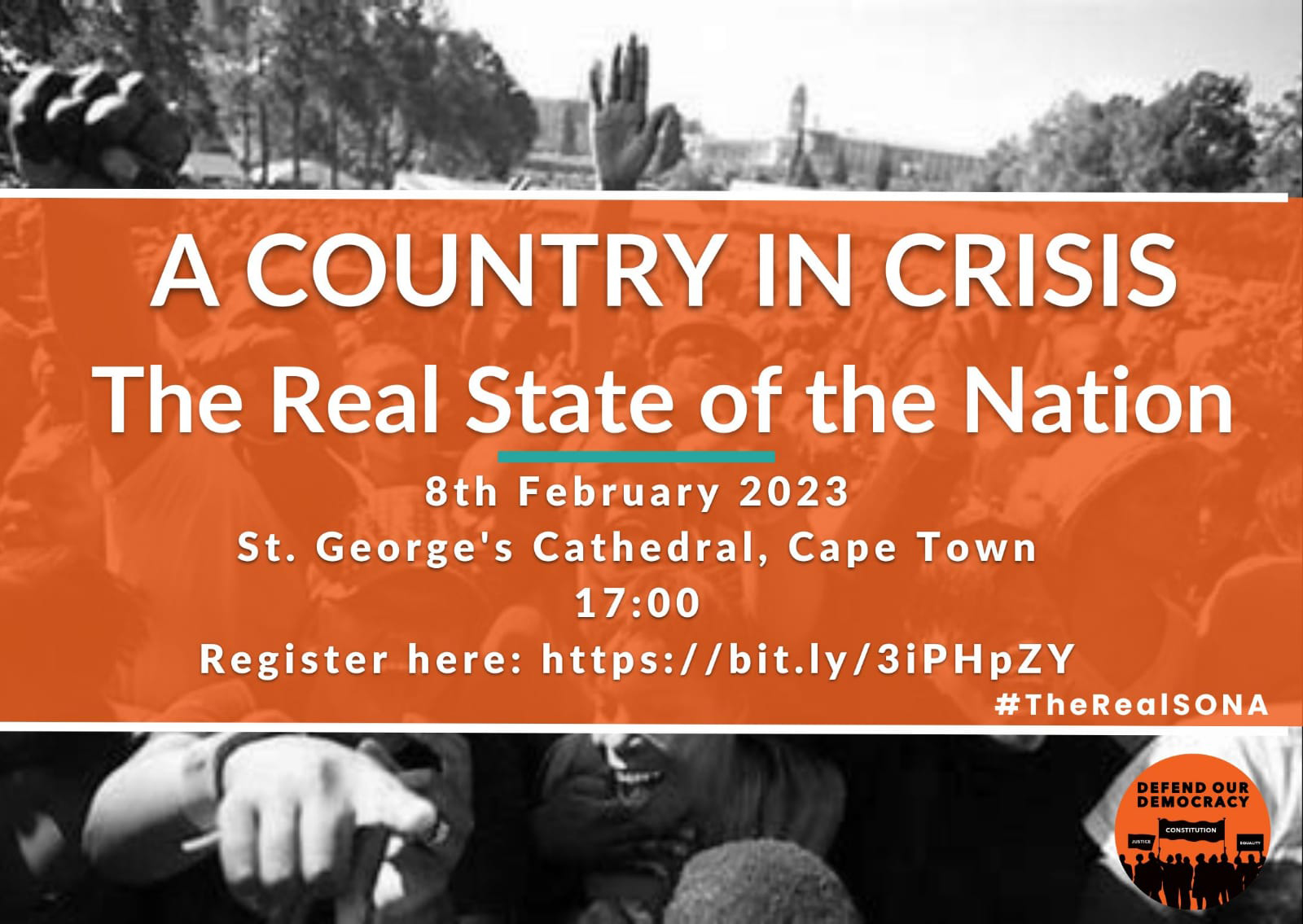
On Wednesday, 8 February, at 5pm, Defend Our Democracy is hosting its annual “People’s State of the Nation Address” at St George’s Cathedral in Cape Town.
The event will explore whether progress has been made in the areas prioritised in previous addresses.
Register here.
On Thursday, 9 February, at 6pm, the Wits Institute for Social and Economic Research will be hosting a book discussion on In the Skin of the City – Spatial Transformation in Luanda, by António Tomás.
“With In the Skin of the City, António Tomás traces the history and transformation of Luanda, Angola, the nation’s capital as well as one of the oldest settlements founded by the European colonial powers in the Southern Hemisphere,” states the book description.
“Drawing on ethnographic and archival research alongside his own experiences growing up in Luanda, Tomás shows how the city’s physical and social boundaries — its skin — constitute porous and shifting interfaces between centre and margins, settler and Native, enslaver and enslaved, formal and informal, and the powerful and the powerless.”
Tomás, who is also an associate professor in the Graduate School of Architecture at the University of Johannesburg, will be in conversation with Teresa Caldeira of the University of California, Berkeley.
Register here.
On Thursday at 7pm, President Cyril Ramaphosa will deliver the State of the Nation Address before a joint sitting of the two houses of Parliament.
Ramaphosa will set out the government’s key policy objectives and deliverables for the coming year, as well as flag challenges and “outline interventions to unblock our nation’s potential”, according to the South African government news release on the event.
“During his address, the President will also highlight what has been achieved since his last address in 2022. He will also reflect on the progress made in implementing the Economic Reconstruction and Recovery Plan.”
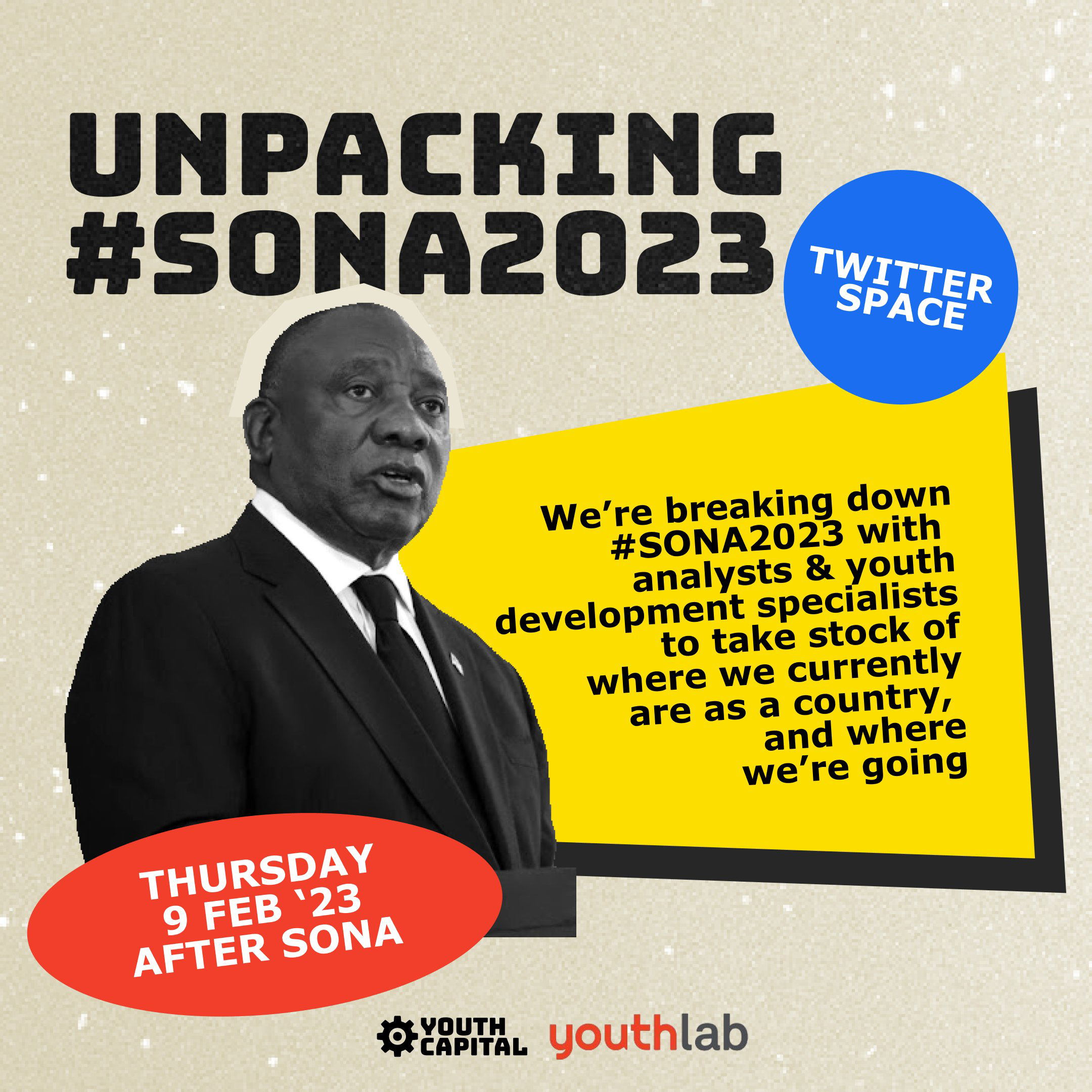
On Thursday at 8.30pm, Youth Capital will be hosting a Twitter space unpacking President Cyril Ramaphosa’s State of the Nation Address.
Analysts and youth development experts will discuss where South Africa currently is as a country, and where it is going.
Schedule a reminder here.
On Friday, 10 February, at 10am, The Lancet will launch the “2023 Lancet Series on Breastfeeding”, made up of three papers. The series examines how the marketing of commercial milk formulae for infants and young children undermines breastfeeding.
The event will be co-hosted by the DSI-NRF Centre of Excellence in Human Development at the University of the Witwatersrand and the DSI-NRF Centre of Excellence in Food Security at the University of the Western Cape and University of Pretoria.
Register here.
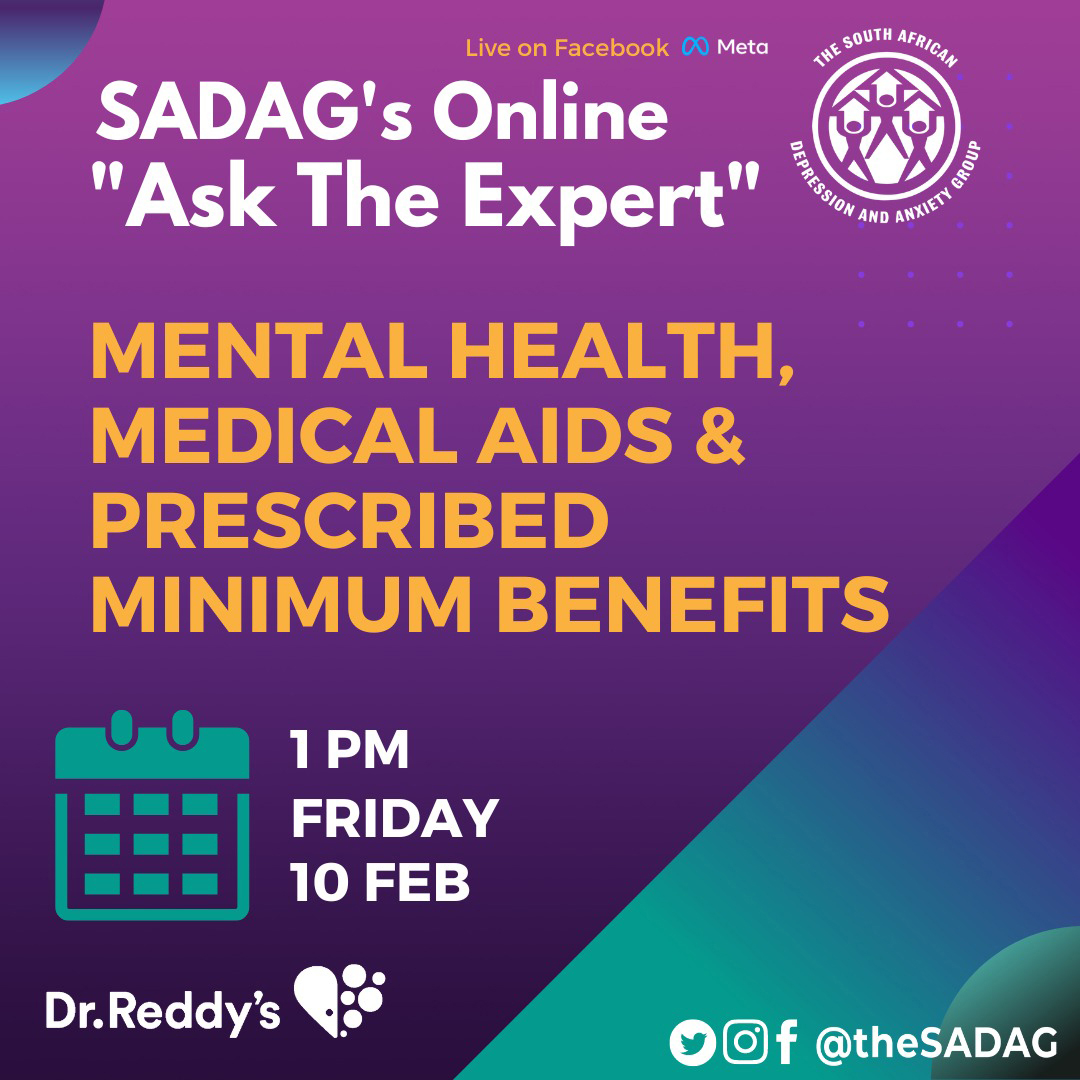
On Friday at 1pm, the South African Depression and Anxiety Group (Sadag) is hosting a discussion on “Mental Health, Medical Aids and Prescribed Minimum Benefits”.
The discussion is an opportunity to learn more about how medical aid and prescribed minimum benefits relate to mental health.
Watch the livestream here. DM/MC



















Comments - Please login in order to comment.